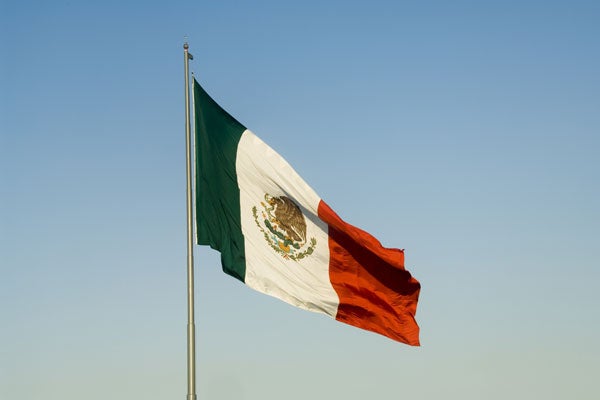With enormous fanfare, Mexico inaugurated its new president on Saturday.
Outgoing President Felipe Calderon of the National Action Party will pass the keys of the executive to Enrique Peña Nieto of the Revolutionary Institutional Party (RIP), who will begin a six-year term.
President Peña Nieto won the election on July 3 without the mandate of a majority of Mexicans and without a congressional majority. Allegations of fraud surrounded his election.
The promises of the presidential campaign and the five-month transition period must now be reflected in executive leadership. Peña Nieto promised to deliver a more prosperous and secure Mexico and has also made a commitment to make his country a strong partner with the U.S.
Peña Nieto has the benefit of not being President Calderon, whose reputation suffered as a result of his controversial decision to confront Mexico’s transnational criminal organizations head on with military force, which Mexican critics labeled Calderon’s “war of choice.” Sadly, after more than 60,000 drug-related homicides, Calderon’s legacy will be Mexico’s continuing public security crisis.
Many will overlook Calderon’s policies and reforms that helped restore Mexico’s economic growth—to the point that it has begun to outperform Brazil—and the underlying commitment to reforms in law enforcement and the judiciary and other acts of institutional strengthening.
Can the new president avoid the pitfall of yielding control of policy to old-fashioned political chieftains (the dinosaurs) of RIP and entrenched labor interests such as teachers and oil workers?
Will his promise to make serious inroads in fighting corruption produce results rather than rhetoric?
Can the new president advance an agenda of competitive structural reforms that includes greater economic freedom and energy sector reforms?
Peña Nieto hopes he was able to set the right tone for future U.S.–Mexico relations when he met with President Obama in Washington on November 27. The new president of Mexico also hopes that Obama II can shape a bipartisan policy toward Mexico, whose achievements have included the North American Free Trade Agreement and improving border management and counter-drug cooperation (the Merida Initiative).
Both the U.S. and Mexico will remain wary of indelible red lines such as national sovereignty, border security, illegal immigration, and the rule of law. Other negative aspects that trouble U.S.–Mexico relations include the politics of nationalism and protectionism, as well as persistent drug consumption in the U.S. and rampant corruption in Mexico.
Today is a day to celebrate the orderly democratic transition from Calderon to Peña Nieto and the start of what is hoped to be a productive and prosperous presidency. The work, however, has just begun.
